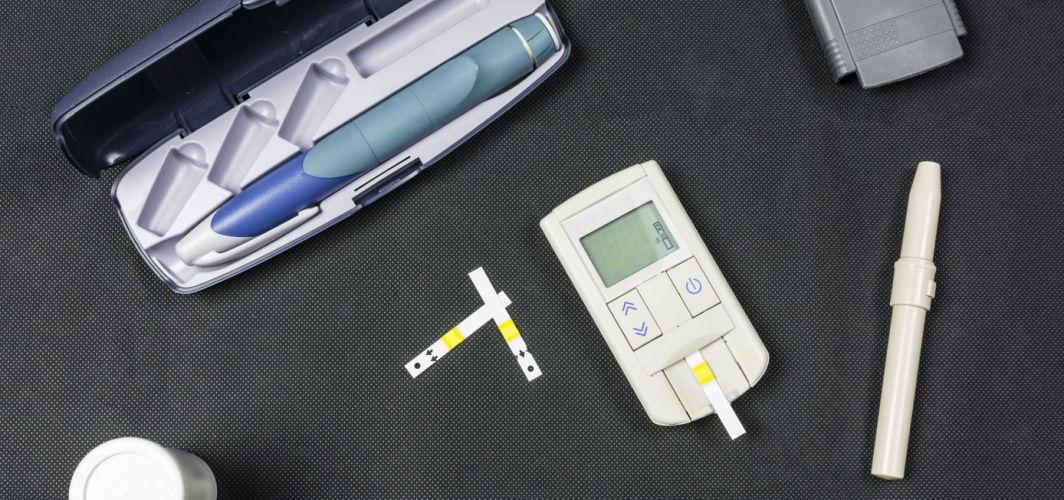Diabetes Management
Understanding Diabetic Nerve Pain in Feet and Essential Care Tips
2 min read
By Apollo 24|7, Published on - 27 June 2024
Share this article
0
0 like
.jpg?tr=q-80)
Do you sometimes feel an unexplainable burning sensation or a deep stabbing pain in your feet? You may be experiencing diabetic nerve pain, also known as diabetic neuropathy. This discomfort, often linked to high blood sugar levels, manifests in various unpleasant sensations that can significantly affect your everyday life.
Understanding Diabetic Nerve Pain
A person living with diabetes may experience a variety of unusual sensations in their feet. These can range from a tingling or burning sensation that starts in the toes and gradually spreads to other parts of the feet. Some may feel a deep, aching, or shooting pain. Numbness or loss of feeling in the toes and feet is another common symptom, along with weakness in the legs and feet. Some people might also have excessively sweaty or dry feet. The intensity of this pain can fluctuate from mild to severe, and if not addressed, can escalate over time.
Effective Feet Care Regime
To prevent further nerve damage, it's crucial to adopt a few good habits for foot care:
- Inspect your feet daily for cuts, sores, swelling, redness, or signs of infection.
- Clean your feet with warm water, dry them thoroughly (especially between the toes), and moisturize dry skin.
- Wear shoes that are comfortable and protective. Avoid going barefoot.
- Have regular foot examinations by a podiatrist or doctor to detect any issues early.
- Keep your blood sugar levels close to normal to prevent nerve damage.
Medications may alleviate painful symptoms. However, maintaining blood sugar control is pivotal in preventing further nerve damage. Seeking early treatment and adhering to a daily foot care routine can effectively manage diabetic nerve pain.
Living with diabetes doesn't mean resigning to persistent discomfort. Apollo's Super 6 program strives to aid individuals in managing type 2 diabetes through lifestyle modifications and personalized support. With proven success in reducing HbA1c levels, weight, waist circumference, and blood sugar, and enhancing active lifestyles and sleep quality, it's a holistic approach towards diabetes management. Further, this approach can help manage diabetic nerve pain or prevent it altogether
Diabetes Management
Consult Top Diabetologists
View AllLeave Comment
Recommended for you
Diabetes Management
Wearable Health Devices and their Advantages for Diabetics
Wearable health devices have revolutionised the way we manage diabetes. With continuous glucose monitoring, real-time data integration, custom alerts, and overall quality of life improvements, these devices are a boon for diabetic individuals. Learn more about how these devices can help you manage your health better while aligning with programmes like the Apollo Super 6 for a comprehensive approach to tackling diabetes.

Diabetes Management
All You Need To Know About Diabetes
This comprehensive guide provides a detailed overview of diabetes mellitus, exploring its various types, causes, symptoms, diagnosis methods, complications, and treatment options. The article emphasizes the importance of understanding the causes and risk factors of diabetes, including heredity, insulin resistance, obesity, genetic disorders, hormonal imbalances, and unhealthy lifestyle choices.

Diabetes Management
What Do Diabetes Test Packages Include?
A glucose random test is a simple procedure that requires no overnight fasting or any special preparations. It simply involves pricking the finger to obtain a drop of blood, which is placed on a test strip of a glucometer for blood glucose reading. A sugar level of 140 mg/dL or below is generally considered normal. This test provides a quick assessment of blood sugar levels without the need for fasting or specific timing.
Subscribe
Sign up for our free Health Library Daily Newsletter
Get doctor-approved health tips, news, and more.
Visual Stories

8 Fruits That are Incredibly Healthy for Diabetes
Tap to continue exploring
Recommended for you
Diabetes Management
Wearable Health Devices and their Advantages for Diabetics
Wearable health devices have revolutionised the way we manage diabetes. With continuous glucose monitoring, real-time data integration, custom alerts, and overall quality of life improvements, these devices are a boon for diabetic individuals. Learn more about how these devices can help you manage your health better while aligning with programmes like the Apollo Super 6 for a comprehensive approach to tackling diabetes.

Diabetes Management
All You Need To Know About Diabetes
This comprehensive guide provides a detailed overview of diabetes mellitus, exploring its various types, causes, symptoms, diagnosis methods, complications, and treatment options. The article emphasizes the importance of understanding the causes and risk factors of diabetes, including heredity, insulin resistance, obesity, genetic disorders, hormonal imbalances, and unhealthy lifestyle choices.

Diabetes Management
What Do Diabetes Test Packages Include?
A glucose random test is a simple procedure that requires no overnight fasting or any special preparations. It simply involves pricking the finger to obtain a drop of blood, which is placed on a test strip of a glucometer for blood glucose reading. A sugar level of 140 mg/dL or below is generally considered normal. This test provides a quick assessment of blood sugar levels without the need for fasting or specific timing.
